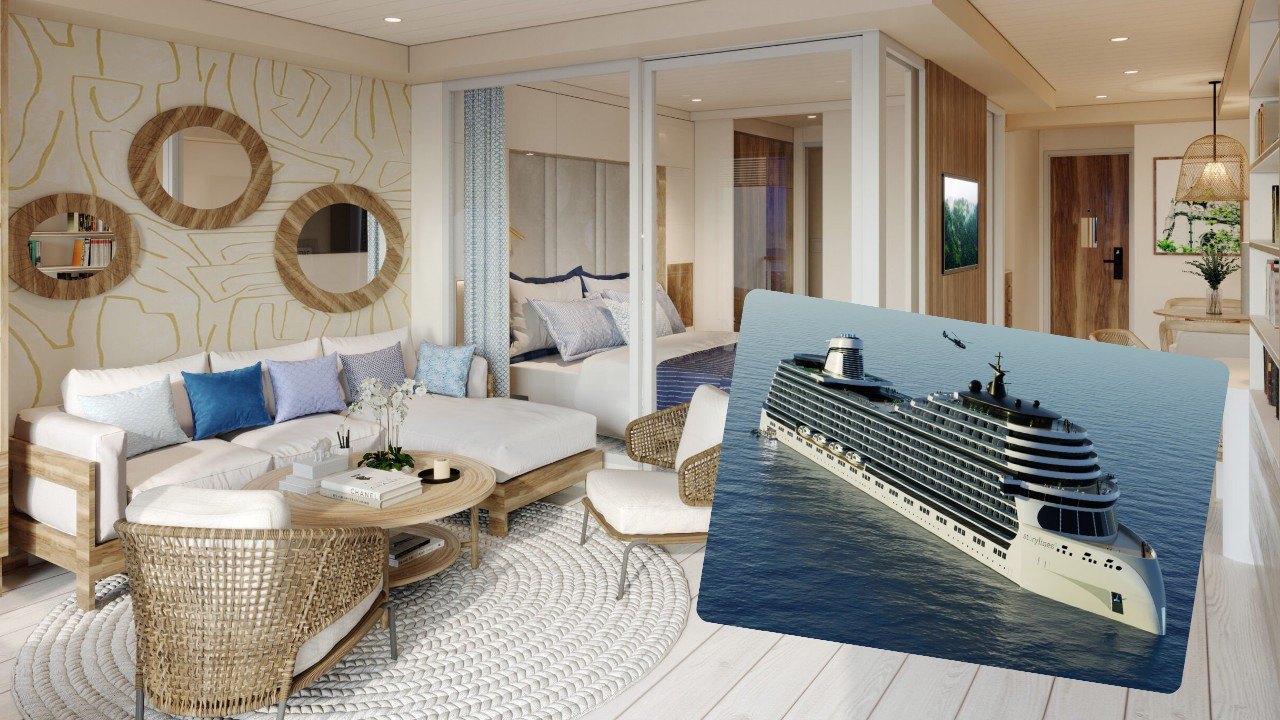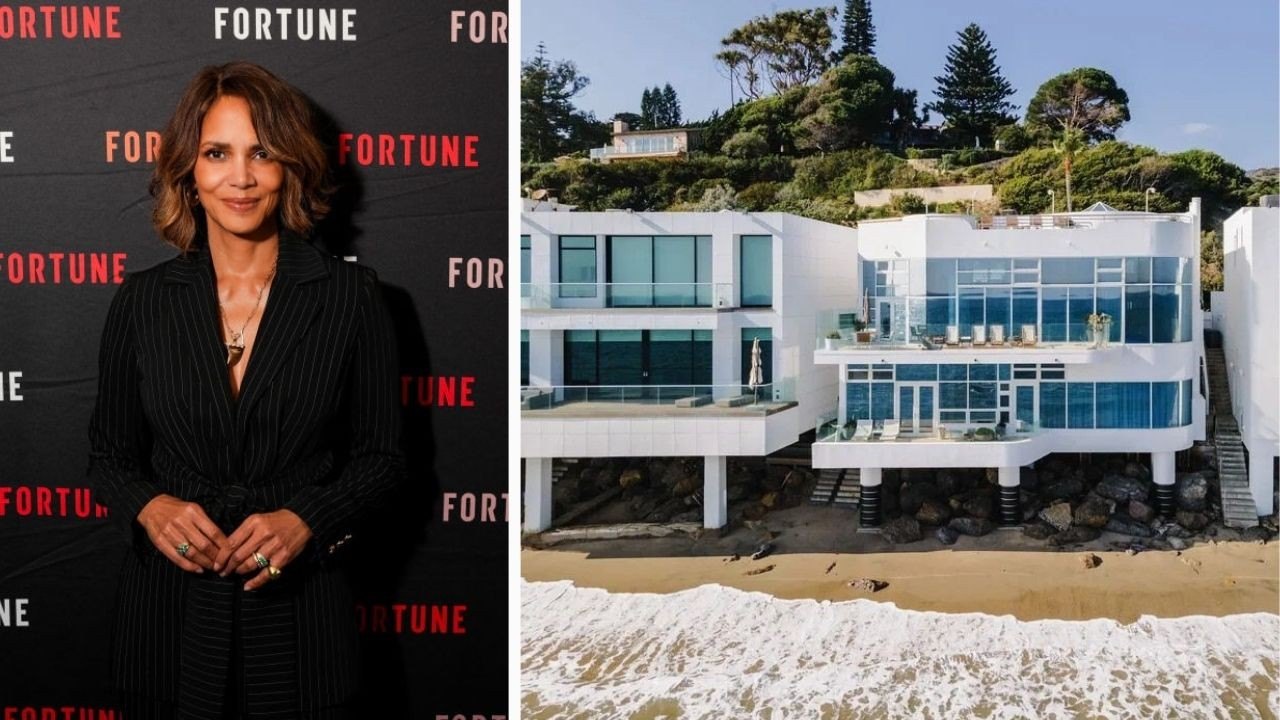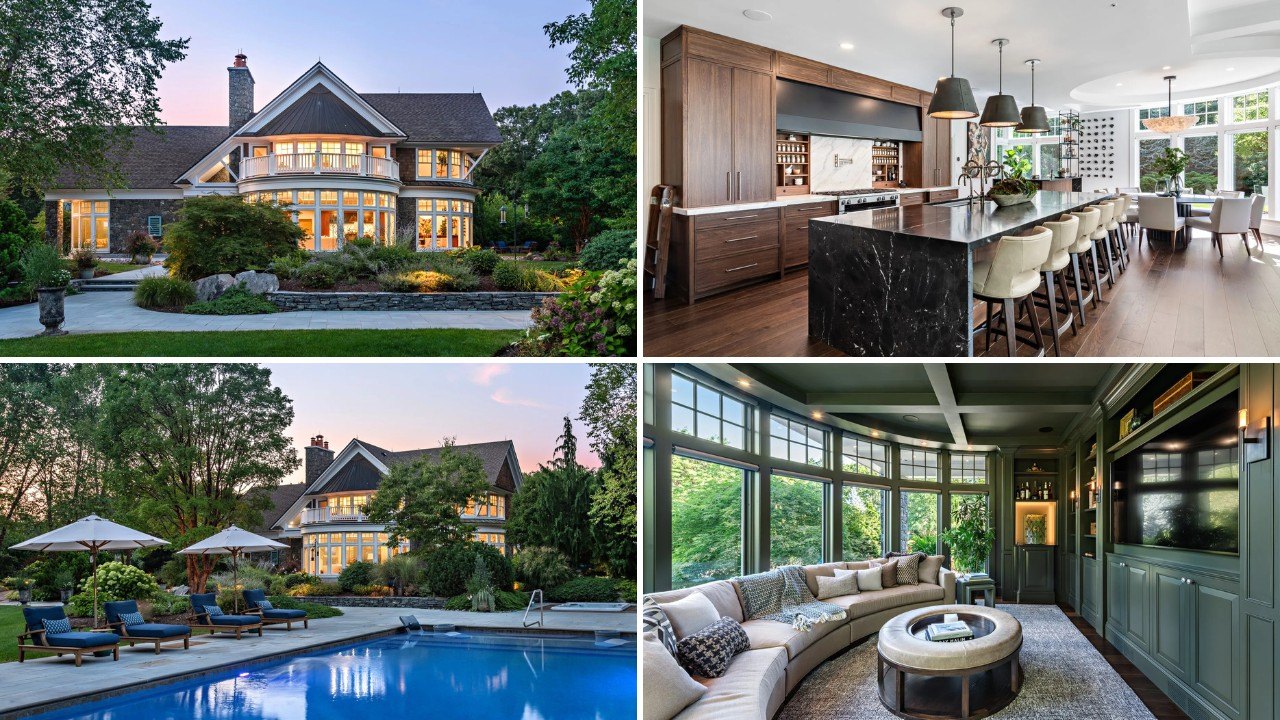‘I Bought a Crumbling $1 Home in Italy and Turned It Into My Dream House’
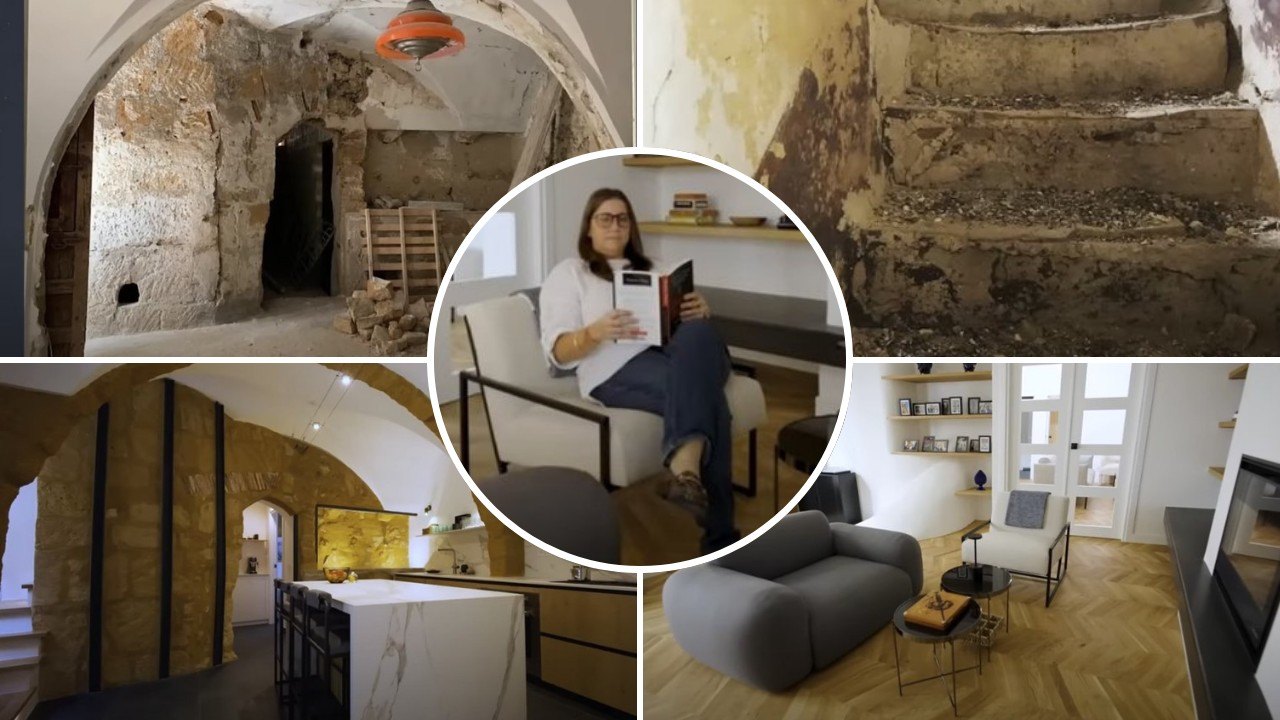
YouTube/CNBC
Buying a $1 home in Italy might seem like a deal that’s too good to be true; and for one Chicago woman who made it her reality, it was. But she doesn’t regret a thing.
Financial advisor Meredith Tabbone was deep into researching her Italian family history in 2019, when she stumbled across an abandoned home being auctioned off with a starting bid of 1 euro (about $1.05 U.S.), in the quaint Sicilian village of Sambuca di Sicilia.
Was it a coincidence that she had just traced her great-grandfather back to the same Sicilian town, where he lived before immigrating to America in 1902?
The 44-year-old told CNBC that she took it as a sign to place a bid, even though it sounded “too good to be true.” And of course it was, since she was buying a property sight unseen.
“From the moment that I sent in the bid, and checked my email every day, and found out that I won, all the way through this process, there have been 4 million moments of frustration, exhaustion, and contemplation of how to move forward, ” she explains in a YouTube video.
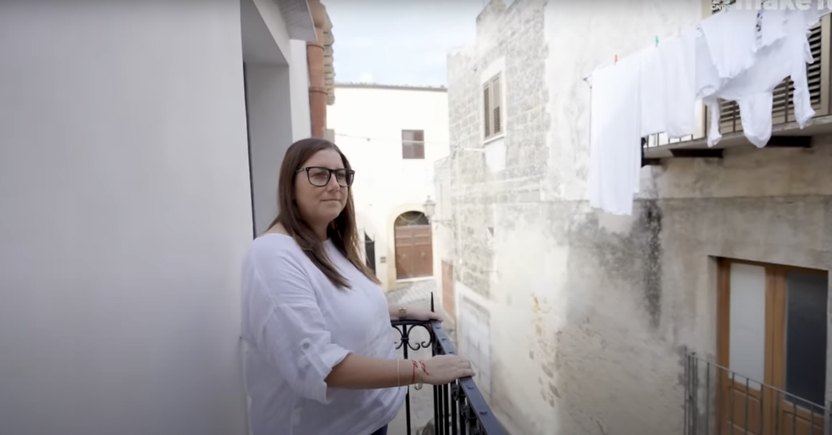
CNBC Make It, YouTube
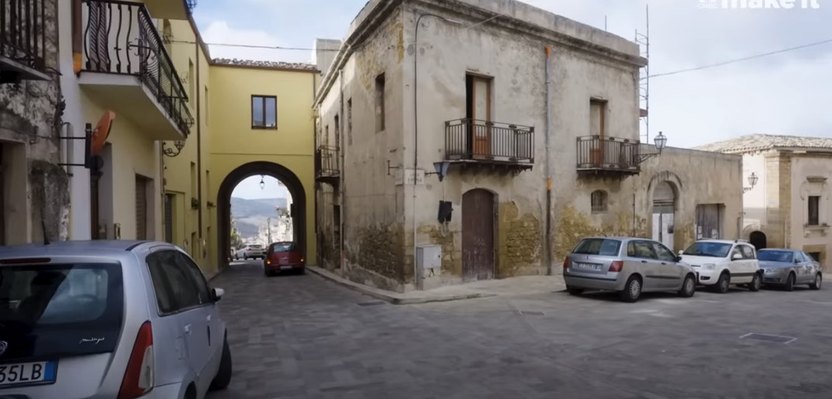
CNBC Make It, YouTube
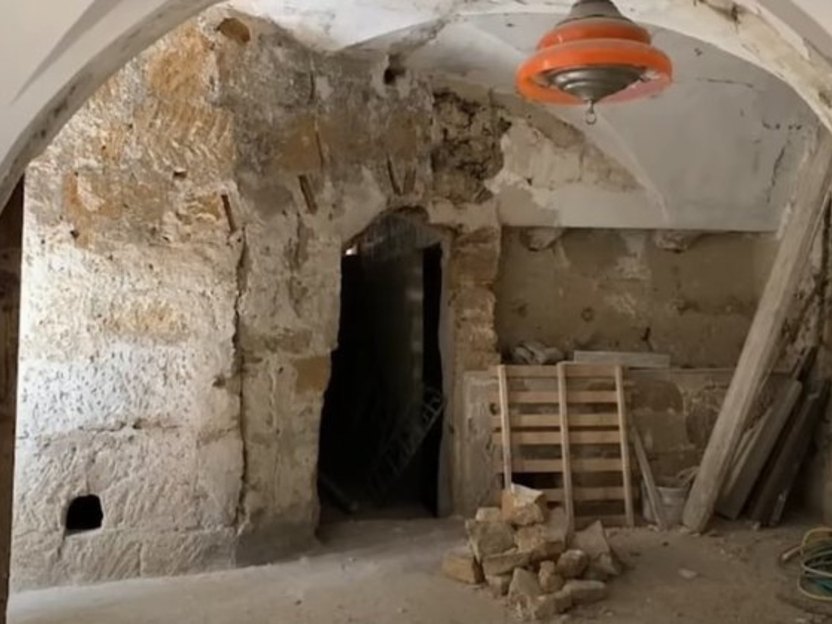
YouTube/CNBC
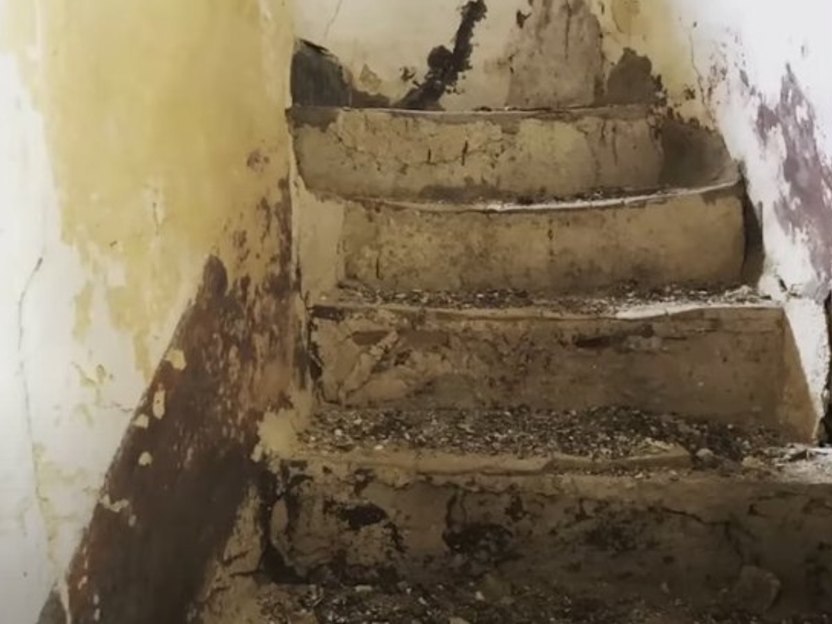
YouTube/CNBC
A number of European villages have gone viral for offering abandoned homes for as little as $1. The goal? To get foreign investors to buy the crumbling homes, rehab them, and increase local population numbers along with the tourist trade.
Tabbone is just one of many who have snapped up one of these deals. Four-and-a-half years and about $500,000 later, she says she doesn’t regret spending a single dime.
“I never felt like this wasn’t the right place for me to be, and that this wasn’t the right project for me to work on or community to live in,” she says.
From the very beginning, Tabbone faced an uphill battle. For starters, it was obvious the house was going to cost more than 1 euro—a lot more. The bid was meant to start ridiculously low to get attention, in hopes that a bidding war would drive the price higher. When the dust settled, Tabbone won the bid at about $6,200.
“Tthe condition of this property when I first saw it was dire at best,” she reveals. “There was no electricity, there was no running water, every single room had a different level of flooring, there was an asbestos roof, and there was probably 2 feet of pigeon poop on the floor.”
But, none of that fazed Tabbone. In fact, the home she originally purchased shared a wall with the house next door, so she ended up purchasing that as well in 2020, for about $23,000.
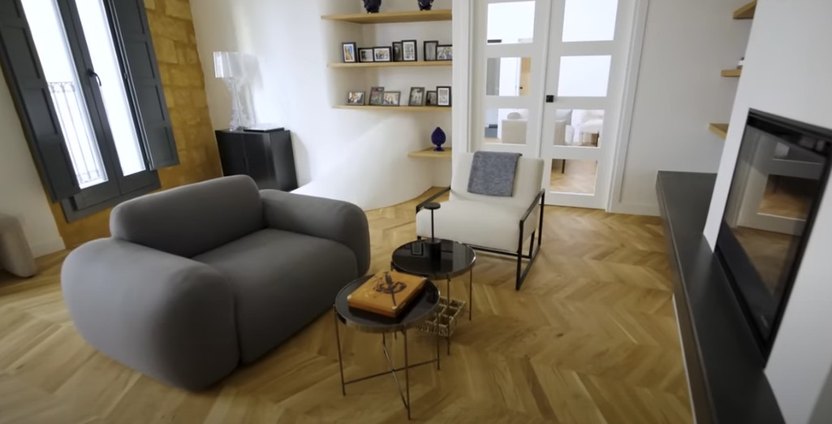
CNBC Make It, YouTube
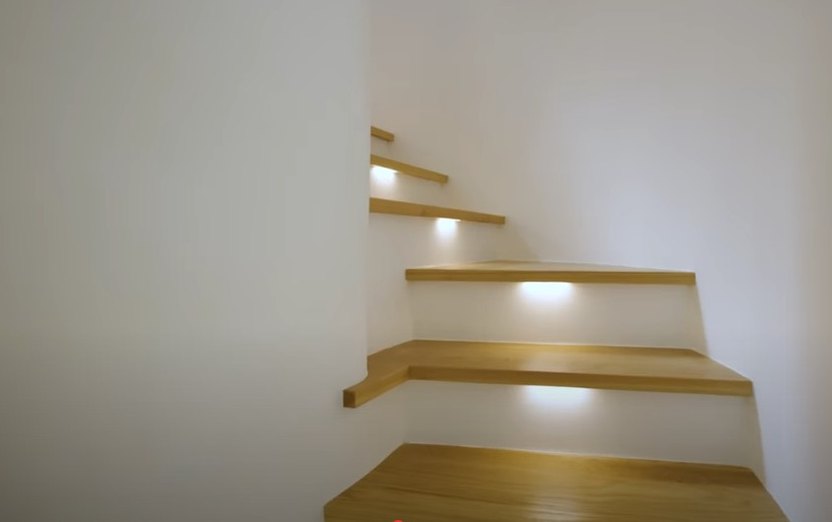
CNBC Make It, YouTube
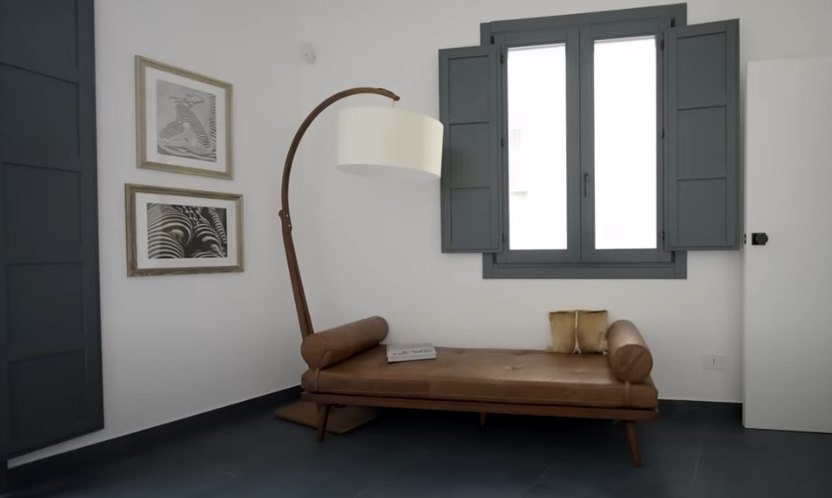
CNBC Make It, YouTube
“The reason that I did that was because the 1 euro home was pretty small [about 620 square feet], which I initially didn’t mind, because I was thinking of it as just an apartment to visit infrequently,” she explains. “But once I started to fall in love with Sambuca and knew I wanted to spend time here, I thought it might be nice to have more room.”
With two homes, her renovation budget skyrocketed. She originally intended to spend about $40,000 to make her freshly purchased home comfy and livable, but she ended up spending $446,000 and three years renovating them both. The home now has four bedrooms and 4.5 baths in 2,700 square feet.
But it also made the project even more daunting. Those who watch reality TV renovation shows will likely remember the immense challenges Dave and Jenny Marrs faced when renovating an Italian villa on “Fixer to Fabulous Italiano.”
“I had never done a renovation like this in my life and did not do any of the renovation work on my own,” she says. “I hired a renovation team to do 100% of the renovation. The only thing I did spend a lot of time on was the design.”
Tabbone says she was inspired by her father, who was an architect and died when she was 15. She now calls the home Casa dell’Architetto in his honor.
She also made many trips between Chicago and Sambuca during the three years it took to renovate.
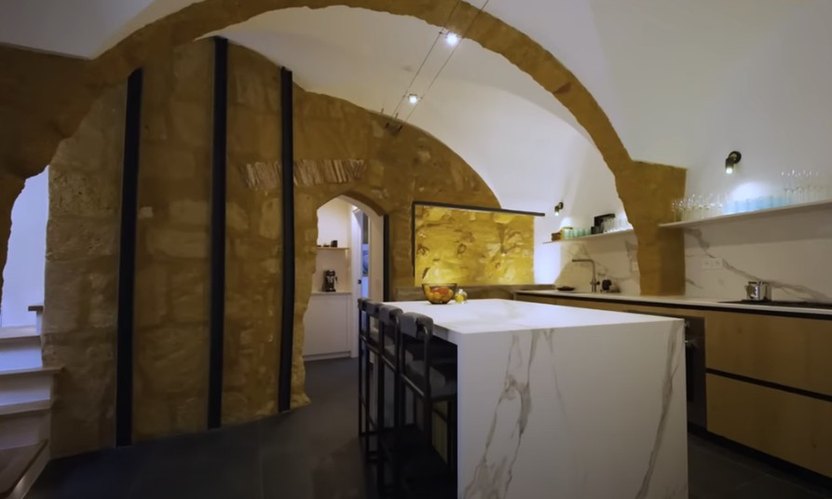
CNBC Make It, YouTube
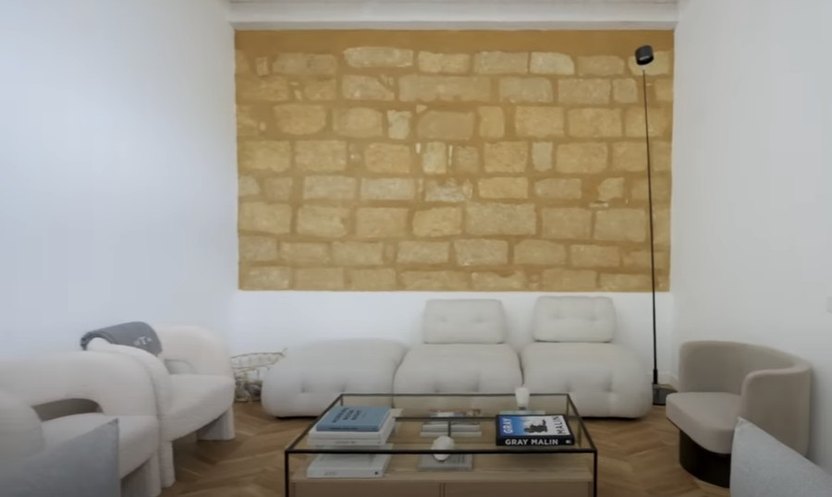
CNBC Make It, YouTube
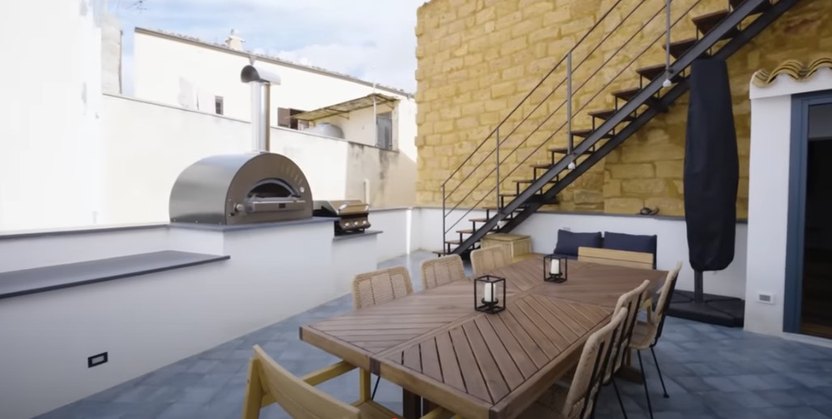
CNBC Make It, YouTube
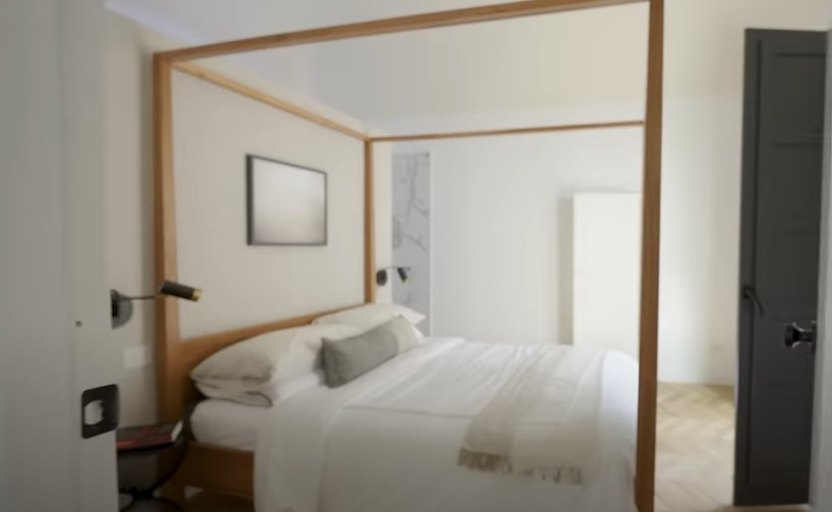
CNBC Make It, YouTube
“It can be expensive to fly back and forth,” she says. “It definitely was the second biggest expense that I had. My contractor was the most expensive thing.”
And because the renovation took place during the COVID-19 pandemic, there were a number of delays—but that turned out to be advantageous.
“I was fortunate that I did not have to pull from savings,” she says.
A few of the more complicated and memorable renovations involved leveling all the floors. The combined homes have two stories and 18 rooms, and every floor was at a different height.
Adding electricity and plumbing was also complicated, as was adding more windows and French doors to bring in more natural light.
For the remarkable kitchen, the renovation team was able to retain one of the original arches and combine two rooms into one. To do this, steel beams were added to protect against earthquakes.
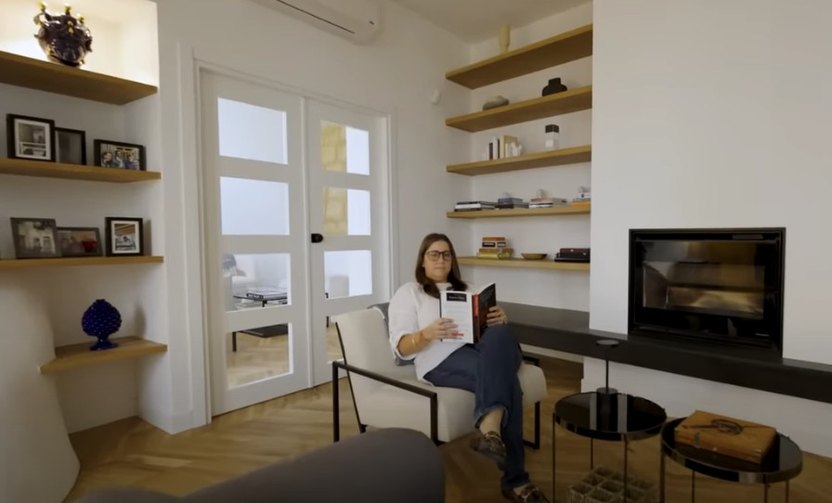
CNBC Make It, YouTube

CNBC Make It, YouTube
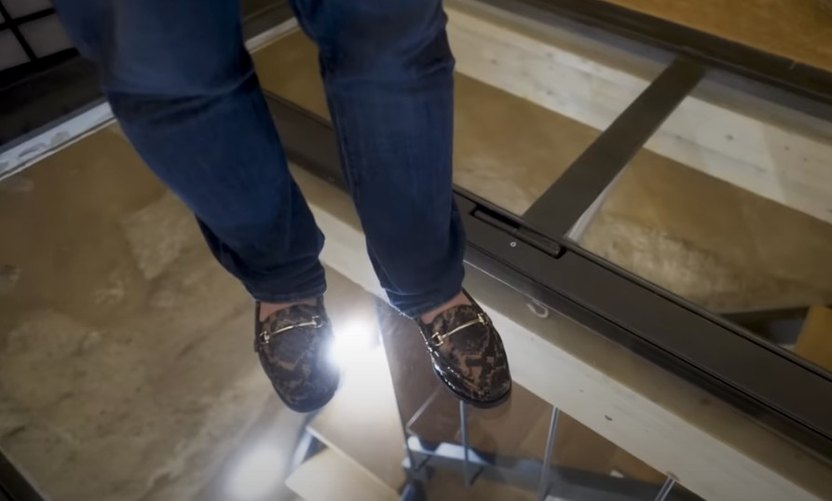
CNBC Make It, YouTube
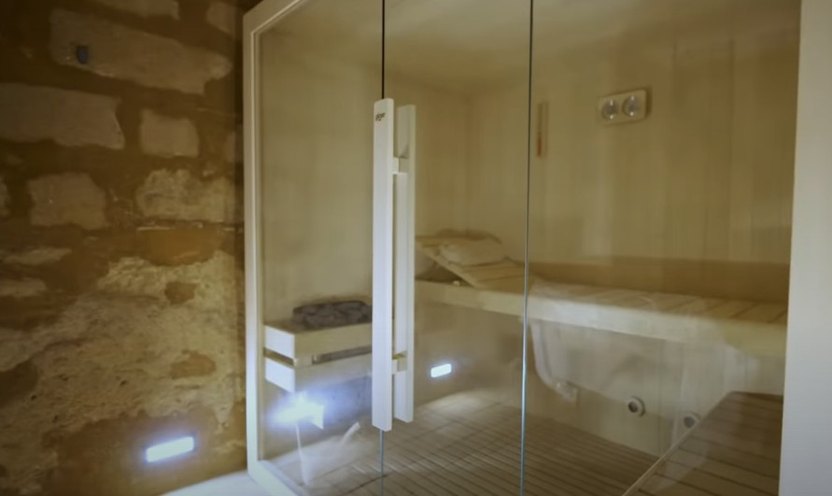
CNBC Make It, YouTube
Tabbone says her favorite room is a bedroom that used to be the main room in one of the houses. Not only does it have an original stone wall with the imprint of the front door, but part of the floor is transparent, and you can look right down into the dry-heat sauna that was added.
The library is another of her favorite rooms. Centrally located between the two homes, a wall was partially removed to combine the two homes into one.
Tabbone also bought the garage next door—to create a guesthouse for families—as well as the house across the street, which she renovated to use as a gallery.
Now that all those renovations are complete, Tabbone is so in love with the home and the town that she wants to try to spend four months of the year there.
“If I could do anything over again in the buying or renovation process, I think I would have learned to have more patience in the beginning,” she says. “I wanted it all to be done pretty quickly, and think I didn’t enjoy the process enough in the beginning.”
Categories
Recent Posts


